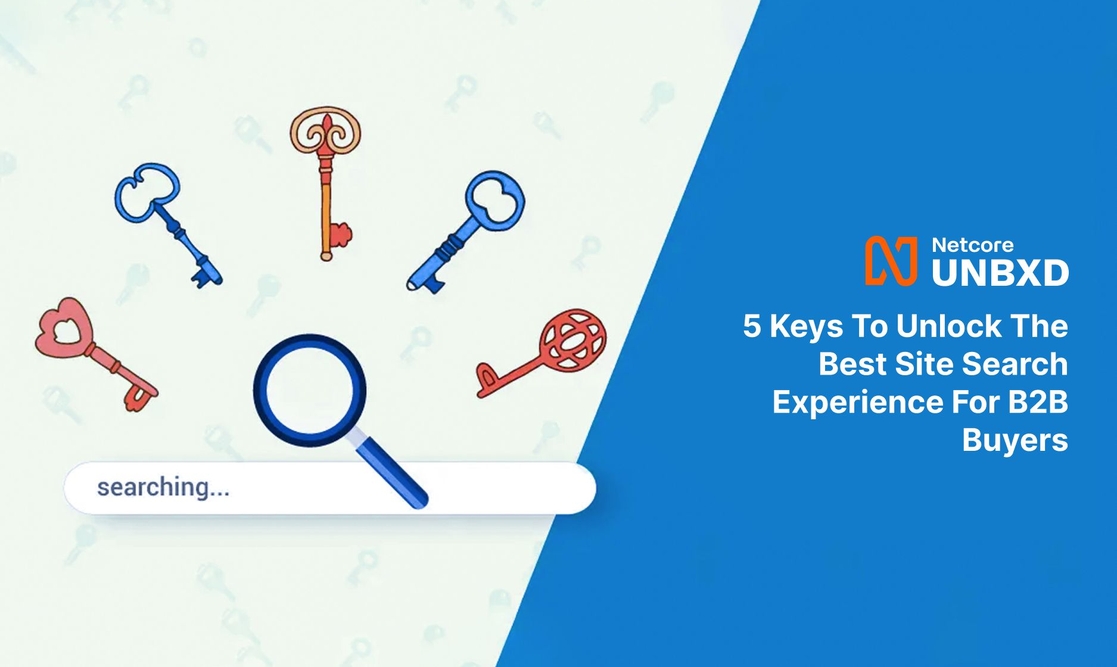- ProductsSearch and BrowseRecommendations
- Solutions
- Integrations


"They’re [B2B buyers] often the people given lists from other departments and employees about what they need, and it’s their job to place the order,” Harley Thomas, senior director of corporate and digital marketing at Supply.
B2B ecommerce is rapidly moving towards consumerization. As a result, B2B buyers increasingly use Amazon and Google in their capacity, which heavily influences their expectations when visiting B2B sites for official procurement.
B2B ecommerce retailers must adapt their user experience to meet these changing buyer expectations. To achieve this, B2B e-tailers could learn from B2C ecommerce best practices.
However, unquestioningly adopting them would serve a different purpose because the behavior and needs of B2B buyers significantly differ from those of B2C buyers.
Site search solutions for B2B ecommerce need to consider the unique traits of B2B buyers. For example, the incidence of repeat purchases is high among B2B buyers. Hence, B2B buyers must have quick and easy access to reorder past purchases.
5 keys to successfully deliver the best search experience
Both B2C and B2B buyers find personalization appealing. But, it has a higher relevance in the B2B world because most B2B buyers are repeat shoppers.
Therefore, it is easier for personalization algorithms to use their great historical buying and browsing data to deliver a highly personalized buying experience.
Offer an intelligent autosuggest solution to shorten the path to purchase

An Intelligent Visual Autosuggestion can significantly reduce the effort of a B2B buyer. In addition to suggesting relevant products and subcategories, the autosuggest solution should allow the buyer to add products to the cart (including change of quantity) directly from the autosuggest window without taking them to the search results page. Shortening the path to purchase saves the buyer’s time and effort.
Allow searching by partial or complete SKU numbers

Most B2B buyers are familiar with the products they are looking for. So, their search queries often contain product part numbers or SKUs. Therefore, retailers must offer their B2B buyers an excellent part number/SKU search capability.
Provide dynamic, relevant facets and filters to enable easier decision-making

B2B buyers buy diverse products, from printer ink to dustbin liners. Relevant aspects and filters help buyers narrow their product selection using the most popular attributes.
Offer search by compliance and compatibility

Many B2B buyers may not know the exact name of the product accessory or spare part they require. Instead, they might see the product name the accessory is associated with. Buyers should be able to search for compatible products.
Their procurement might also mandate products that meet specific standards like GSA, TAA, energy rating, etc. So, it's better to provide them with the ability to search by compliance requirements.
Improved B2B site search experience helps grow conversions and revenue
For most B2B buyers, official procurement is a significant part of their job, unlike most B2C shoppers who shop for their personal needs. Even when B2B buyers do not buy, they usually research the product or the best place to buy it.
Final words
So, providing them with an intuitive search experience is imperative to turn them into loyal customers who are most likely to buy in bulk. Otherwise, it is natural for them to move on to your competition or even to Amazon to purchase.
To know more about how Unbxd Site Search can help you provide a relevant and engaging experience to your buyers, book a demo